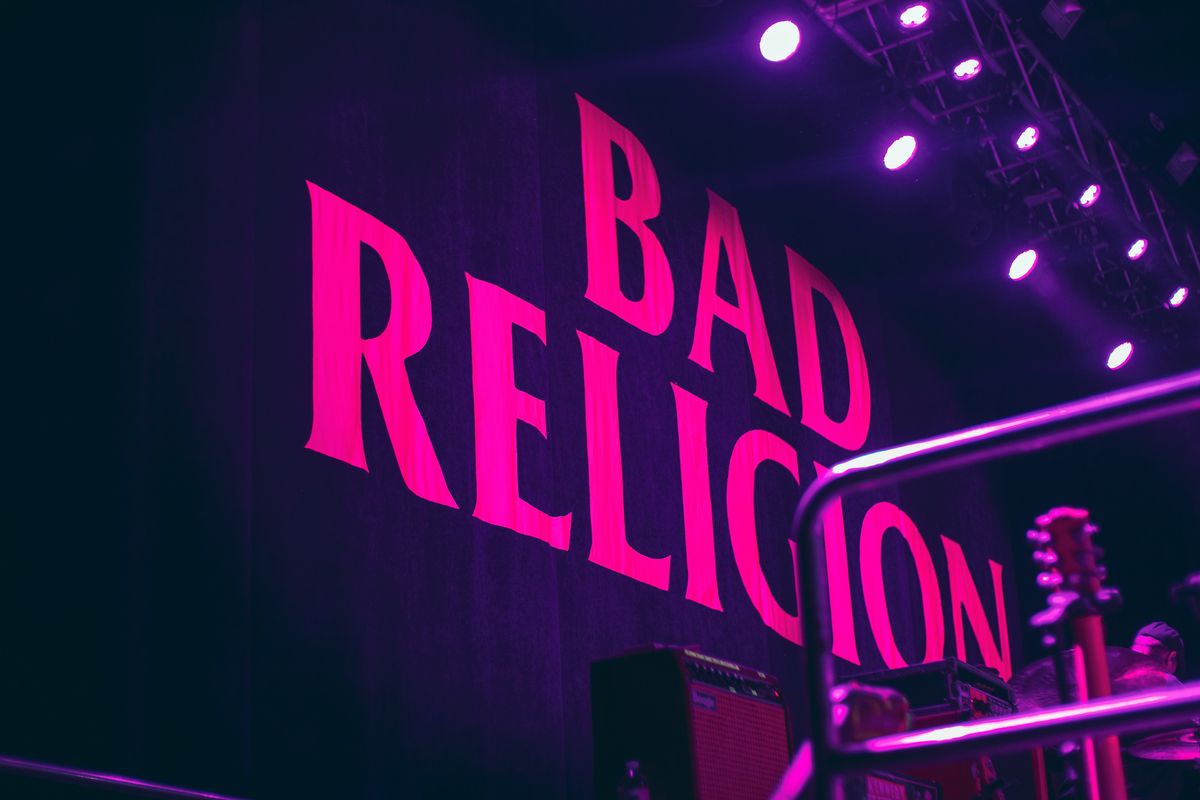Review: Bad Religion, opener Slaughterhouse exemplify the power of punk rock

Legendary punk rock veterans Bad Religion played their first show in Spokane in their 40-year career at Knitting Factory on March 30, and the evening was filled with catchy punk riffs and plenty of circle pits. Bad Religion was so appreciative of the crowd that singer Greg Graffin promised to return to Knitting Factory on every tour going forward.
SoCal’s post-punk up-and-comers Slaughterhouse opened the night. A formidable frontwoman, Veronica Molidor’s piercing punk rock screeches come by way of Siouxsie Sioux meets Gwen Stefani. Paired with guitar player Taylor Ramirez’s chorus-drenched, Robert Smith-esque playing, the band was a delightful surprise for fans who hadn’t heard of them before.
Bad Religion followed shortly after with a blistering 29-song setlist covering tracks from their entire 40-year career. Since forming in L.A. in 1980, the band has been known for their poignant lyrics criticizing American culture and their unforgettable vocal hooks. This has created a not-so-underground following for the massively successful band who shaped the sound that bands like Green Day, NOFX and the Offspring would bring to the mainstream in the 1990s.
The show’s lineup featured original members vocalist Graffin and bassist Jay Bentley with other punk rock legends like guitarist Brian Baker (Minor Threat), guitarist Mike Dimkich (the Cult) and drummer Jamie Miller (Snot and … And You Will Know Us by the Trail of the Dead). Despite all of these dudes being in their late 50s, they put on a high-energy punk rock show (though, according to a source close to the band, they have been doing a lot of golfing in between tour dates).
The band played many of their most well-known songs, including “American Jesus” off 1993’s “Recipe for Hate” and “21st Century Digital Boy” off 1994’s “Stranger Than Fiction.” Both of these tracks feature Gaffin’s iconic, whip-smart and deeply critical lyrics and the band’s catchy musicianship. Standout performances of the evening were the band’s slower tracks, like “Slumber” and “Sorrow.”
In many ways, Bad Religion, with their pop sensibility, helped bring punk into the mainstream and served as the prototype for the pop punk wave of the early 2000s. It’s not a far (or unobvious) stretch from the highly political “American Jesus” to Green Day’s massively successful ode to George W. Bush, “American Idiot.”
However, what is stranger is the current revival of pop punk led by folks like Machine Gun Kelly, who have seemingly all but divorced themselves from the self- and cultural awareness laid down by Bad Religion.
Arguably the biggest pop punk performer ever at 20.8 million monthly streams on Spotify (versus Bad Religion’s 1.5 million and Green Day’s 2 million), MGK promotes vapid self-obsession and blatantly toxic relationships. It seems the genre started by so many brilliant musicians and minds has sadly turned into a horrific parody of itself.
While the future of punk rock in the mainstream seems dismal at best, old torchbearers like Bad Religion and new bands like Slaughterhouse seem to have maintained the genre’s soul – cultural criticism – while still maintaining pop sensibilities. Or maybe I’m wrong? Maybe it was about the circle pits the whole time. Either way, at least we can look forward to Bad Religion returning to Knitting Factory.